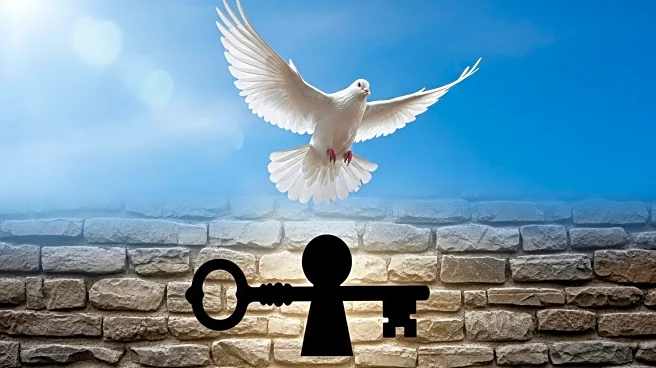What's Happening?
José Daniel Ferrer, a prominent Cuban dissident, has arrived in the United States following his release from prison in Cuba. Ferrer, known for his leadership in Cuba's pro-democracy movement, was freed after a formal request from the US government. His release comes after years of imprisonment and alleged torture by the Cuban regime. Ferrer had been convicted for his involvement in protests against the government and was serving a sentence until his early release was revoked earlier this year. His arrival in the US marks a significant moment for Cuban dissidents and their supporters.
Why It's Important?
Ferrer’s release and arrival in the US is a significant development in the ongoing struggle for human rights in Cuba. It underscores the international pressure on the Cuban government to address its human rights record and the treatment of political prisoners. Ferrer’s case has been a focal point for US-Cuba relations, with American officials advocating for his release. His presence in the US may galvanize further support for Cuban dissidents and increase scrutiny on Cuba’s political practices. This event also highlights the broader geopolitical dynamics between the US and Cuba, particularly regarding human rights advocacy.
What's Next?
Ferrer’s arrival in the US could lead to increased advocacy and lobbying efforts for the release of other political prisoners in Cuba. US officials, including Secretary of State Marco Rubio, have called for the release of over 700 political prisoners in Cuba. Ferrer’s case may also influence US policy towards Cuba, potentially affecting diplomatic relations and negotiations. The international community may respond with heightened calls for human rights reforms in Cuba, and Ferrer’s activities in the US could play a role in shaping public opinion and policy.










